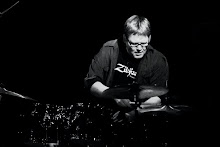| Here's some great info about Frank Zappa from website ineedcoffee.com Definitely a site I need to check out, (Thanks to Kate for this.) Without getting into too much detail, in the past I indulged in many things that ultimately didn't make me a better human being, let alone a better musician. I have been sober for awhile now and have been enjoying life a lot. I've even changed my eating habits and dropped 18 lbs since the end of summer. One addiction, however, that still has a massive hold on me is coffee. I have no doubt because of the amount I drink I will have to give it up eventually but until that day I plan to enjoy my last non musical "Jones". It's cheap, legal, and available everywhere!
"To me, a cigarette is food," said Zappa in his autobiography, The Real Frank Zappa Book. "I live my life smoking these things, and drinking the 'black water' in this cup here." Alas, my friends, this is not INeedCigarettes.com - we shall concentrate on the latter of the two aforementioned vices. Many are ready to assume that Zappa followed the lead of the herd of fellow '60s musicians in consuming a rich spectrum of drugs. His often trippy 1966 album Freak Out! was released a good year before the Beatles' Sgt. Pepper's Lonely Hearts Club Band set the industry standard for psychedelic rock. The bizarre lyrics and sometimes grotesque instrumental features on Freak Out! and subsequent albums led many a listener to believe that Zappa's influences were chemical. However, Zappa's eccentricities were not born of narcotic drugs; a Zappa feature in a 1976 'Suosikki' Magazine article says it all: Q: Do you have a drug problem? Coffee: A Driving ForceEven without the specific references to coffee drinking, it is apparent in Zappa's lifestyle and his art that coffee was a driving force. His approach to making music was not the erratic one we might expect from a rock musician. Rather, he played with the ethic of a genuine workaholic. Biographer/groupie/musician Nigey Lennon describes her baptism by dark roast in her book Being Frank: My Time With Frank Zappa. Upon her initiation into Zappa's band, the Mothers of Invention, Lennon was permitted to play only after gulping down horrifyingly strong and dark coffee. When the rest of the Mothers had been similarly wired, the band was finally ready to begin its marathon jam sessions. "I work as many hours a day as I can physically stand to," he said during an interview with Don Menn for Guitar Player magazine. "The average is about 15 now." Little wonder that his fellow band members had to drink the most potent of coffee to keep up. The Hills Are Alive With the Sound of CoffeeZappa's love for coffee was not bound to the rehearsal room, as he drank it on stage as well. Coffee even made it into the recording studio, often home to noise creations by Zappa that challenged conventional definitions of 'music'. For a man who spent his life seeing, smelling, and tasting coffee, it makes sound sense that he would eventually want to hear it, too. "The other great noise was -- there are two people in this group who play didgeridus," Zappa recalled in an interview with Bob Menn in Best of Guitar Player. "One of them is the woman from Australia who is also the oboe player. And one afternoon, I imagined this awful sound that could be created if one were to take a didgeridu and play it into a partially filled coffee pot. And I asked her whether she would do it. She said yes, and let me say, it is truly nauseating. I was laughing so much I had to leave the room." Overachieving, overreaching, overworking, Frank Zappa's approach to his work and art is reflected in the incessantly wired world of coffee drinking America. INeedCoffee.com salutes him as a true coffee achiever. Further Reading
|
Here's the man himself playing the beautiful instrumental "Watermelon in Easter Hay" What Frank, no coffee? |


